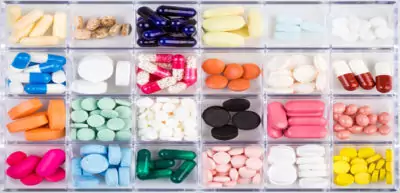PCOS test is based on the Rotterdam criteria for diagnosing PCOS.

Drug Side Effects
Getting afflicted by diabetes can be a life-changing experience. If taken positively, it can change your life for the better. You’d then be on a disciplined, holistic diet plan; you’ll exercise more and generally lead a healthy lifestyle. Your healthcare expert will surely put you on drugs that will help you control your blood sugar levels but they will also bring along undesirable side effects with them. Type 2 diabetes drugs side effects can be reduced, even completely gotten rid off. This requires an understanding of how these drugs actually work inside our bodies. Check out Patrick’s story below to understand how anti-diabetes drugs do more harm than good.
Incident 1 Patrick’s been feeling a little run down lately, and a lot thirstier too. Add the frequent restroom breaks to that and it suddenly clicks. At age 50, he realizes that’s exactly what his dad went through 40 years ago.
He heads to the doctor, but in his gut he already knows the verdict. He has what his dad bequeathed him – diabetes. The doctor puts him on Metformin. He takes it regularly and starts to feel better. He has also been told to watch his diet and get regular exercise. But, he knows that no matter what he does, chances are, the diabetes meds are going to be his companion for the rest of his life.
Incident 2 Fast-forward to 10 years later, Patrick doesn’t have as much energy as he used to and his heart feels ‘heavy’. He blames it on age and carries on. But, his muscles begin to feel sore too, so finally, he decides to see the doctor to get a full workup. It reveals that his heart is indeed a little stressed. His muscle aches and tiredness are a result of a serious vitamin B12 deficiency.
Patrick sees no link between Incident 1 and 2. Do you?
Sadly, most of us don’t. Because the incidents are so far apart, we fail to link one to the other.
We all know that drugs have side effects. Most diabetics are familiar with tingling feet or failing eyesight, or just plain weakness or body pain.
Some drugs work through a chemical mechanism that unintentionally excretes certain nutrients from the body. Others block the body’s proper absorption of nutrients from food. So, the effect of diabetes on the body is the result of a combination of –
Most of us are not aware that the drugs we are given to lower our blood sugar may steal vitamins and enzymes from our body.
In his seminal book Drug-Induced Nutrient Depletion Handbook, Dr. Ross Pelton, Ph.D., clearly states, “Many of the side effects from drug therapy may not be directly due to the drug itself, but rather are the result of nutritional deficiencies that are caused by the drug when taken over time.”
So, Patrick could have avoided the side effects of diabetes medication Metformin by simply taking a good vitamin B12 supplement when he was started on it. It really is that simple!
Diabetics are routinely put on a variety of drugs without a detailed discussion of their side effects they are likely to face. Today, there are 10 classes of drugs used to deal with diabetes and there are known side effects to each of them. Several drugs use a combination of two or more classes of drugs. So, the number of anti-diabetic drug brand names runs into hundreds worldwide.
Drug-nutrient depletion has not been studied for all 10 classes of drugs. But today, we have research that reveals what many of the standard drugs may be depleting from our bodies, in terms of vitamins, minerals and other nutrients.
We’ve built a simple tool to help you identify the likely nutrients you are missing. Just enter the name of your drug and our tool will help you/your medical practitioner figure out what it depletes from your body. These results are based on previously-conducted researches.
Many diabetes drugs deplete a critical element called coenzyme Q10, or CoQ10. It is vital for heart health, giving the heart the energy it needs to work. Lack of CoQ10 can cause weakness, high blood pressure or congestive heart failure.
Another crucial vitamin depleted from the body through diabetic drugs is folic acid or vitamin B9. This increases the risk of cardiovascular disease, and in women, of cervical dysplasia as well.
To figure out what your drug could be stealing from your body, use our Drug Nutrient Depletion tool.
While it would be best to use our tool to figure out what you may specifically need to put back into your body, here is what would help. To deal with the long-term side effects of some popular classes of diabetes drugs, the following supplement dosages are considered as a safe benchmark:
So, catch the thief before these nutrients fall dangerously low. A few cents a day, spent on the right supplements could be the difference between nasty side effects and a smooth sailing life.
Dietary supplements can also help you reduce inflammation in your body and support you in your efforts to cope with diabetes.
Most importantly, do remember that sufficient exercise, restful sleep, stress relief through meditation and yoga and intermittent fasting are, all, lifestyle changes that can really make a huge difference.
1. Drug-Induced Nutrient Depletion Handbook: Ross Pelton, James B. LaValle, Ernest B. Hawkins, Daniel L.Krinsky et all, 2nd Edition
2. Supplement Your Prescription: Hyla Cass, M.D.